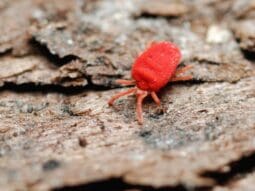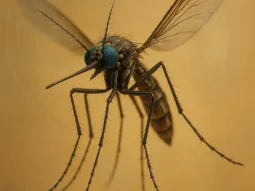
Moving into a new house is exciting, but it often comes with unexpected challenges. One question that frequently arises is whether pest control is necessary for a newly built or recently purchased home. While it's tempting to assume a new house is pest-free, that's not always the case.
We'll explore why pest control might be essential even in new homes and what factors to consider when making this decision. From hidden infestations to preventive measures, understanding the importance of pest management can help protect your investment and ensure a comfortable living environment from day one.
Understanding Pest Control for New Houses
Pest control for new houses is often overlooked, but it's crucial for maintaining a healthy living environment. We'll explore common misconceptions and potential pest issues in new construction to help you make informed decisions about pest management in your new home.
Common Misconceptions About New Homes and Pests
- New homes are pest-free: Many homeowners believe new construction is automatically free from pests, but this isn't always true.
- Pest control isn't necessary: Some think pest control is only for older homes with existing infestations.
- Builders handle pest prevention: While builders may take some precautions, comprehensive pest control isn't typically part of their services.
- Visible pests are the only concern: Hidden pests like termites can cause significant damage without being easily noticed.
- One-time treatment is sufficient: Regular pest control is often necessary to maintain a pest-free environment.Construction-related infestations:
- Exposed materials attract pests during building process
- Wood piles and debris serve as habitats for various insects
- Moisture from new concrete creates ideal conditions for certain pestsPre-existing conditions:
- Underground termite colonies may already be present on the property
- Nearby infestations can quickly spread to new structureLandscaping challenges:
- Newly planted trees and shrubs can harbor pests
- Mulch often attracts insects and provides shelteStructural vulnerabilities:
- Small gaps or cracks in new construction offer entry points for pests
- Improperly sealed utility lines create access for rodents and insectEnvironmental factors:
- Surrounding ecosystem may introduce pests to the new property
- Seasonal changes can drive pests to seek shelter in new homes
Assessing the Need for Pest Control
Evaluating the necessity of pest control for a new house requires a thorough inspection and understanding of potential risks. We'll explore key indicators of existing pest issues and compare preventive measures to reactive solutions.
Signs of Existing Pest Problems
Identifying pest problems early is crucial for effective management. Look for:
- Droppings or feces, especially in corners or hidden areas
- Gnaw marks on wood, wires, or food packaging
- Unusual odors, particularly musty or ammonia-like smells
- Visible insects or rodents
- Damaged wood, especially in basements or attics
- Discarded insect wings or exoskeletons
- Nests or hives in walls, eaves, or trees near the house
- Unexplained noises in walls or ceilings
Regular inspections of these areas help detect infestations before they escalate.
Preventive vs. Reactive Pest Control
Preventive pest control focuses on proactive measures to deter infestations, while reactive pest control addresses existing problems.
Preventive Pest Control:
- Creates barriers against pest entry
- Eliminates potential food and water sources
- Involves regular inspections and maintenance
- Costs less long-term
- Minimizes property damage
- Reduces health risks associated with pests
Reactive Pest Control:
- Addresses active infestations
- Often requires more aggressive treatments
- Can be more expensive due to potential property damage
- May involve multiple treatments to eradicate pests
- Disrupts daily life during treatment processes
| Aspect | Preventive Control | Reactive Control |
|---|---|---|
| Timing | Before infestation | After infestation |
| Cost | Lower long-term | Higher short-term |
| Effectiveness | High for prevention | Varies based on infestation |
| Environmental Impact | Generally lower | Potentially higher |
Implementing a preventive approach in a new house establishes a strong foundation for pest management, reducing the likelihood of future infestations and associated costs.
Benefits of Early Pest Control in New Homes
Implementing pest control measures early in a new home offers numerous advantages. These benefits extend beyond immediate comfort, impacting long-term financial health and property value.
Long-Term Cost Savings
Early pest control in new homes leads to significant long-term cost savings. By addressing potential pest issues before they become problematic, homeowners avoid expensive treatments and repairs. Regular inspections and preventive treatments cost less than dealing with full-blown infestations. For example, termite damage repair costs average $3,000 to $6,000, while annual termite inspections typically range from $75 to $150. Early pest control also reduces the need for chemical treatments over time, saving money and minimizing environmental impact.
Protecting Your Investment
Pest control safeguards your new home investment by preserving its structural integrity and market value. Untreated pest infestations can cause severe damage to a home's foundation, walls, and roof. Wood-destroying insects like termites cause an estimated $5 billion in property damage annually in the U.S. Early pest control measures protect against:
- Wood decay from moisture-loving pests
- Electrical wire damage from rodents
- Weakened structural supports due to carpenter ant activity
- Compromised insulation from pest nesting
By maintaining a pest-free environment, we ensure our new homes retain their value and appeal, both for our comfort and potential future resale.
Key Areas to Focus on for Pest Prevention
We've identified crucial areas for effective pest prevention in new homes. By concentrating on these key aspects, homeowners can significantly reduce the risk of infestations and maintain a pest-free environment.
Exterior Inspection and Maintenance
Exterior maintenance is the first line of defense against pests. Regularly inspect the home's exterior for potential entry points, such as gaps around windows, doors, and utility lines. Seal these openings with appropriate materials like caulk or weatherstripping. Keep the foundation area clear of debris and maintain a gravel or rock barrier around the perimeter. Trim trees and shrubs away from the house to prevent pests from using them as bridges. Ensure proper drainage around the foundation to avoid moisture accumulation, which attracts pests.
Interior Pest-Proofing Measures
Inside the home, focus on creating an inhospitable environment for pests. Store food in airtight containers and clean up spills promptly. Reduce clutter, especially in basements and attics, to eliminate potential hiding spots. Use door sweeps and screens on windows to prevent pest entry. Regularly inspect and clean areas prone to moisture, such as under sinks and in bathrooms. Consider using natural deterrents like essential oils or diatomaceous earth in problem areas. Implement a consistent cleaning routine, paying special attention to kitchen and dining areas where food residues attract pests.
When to Hire a Professional Pest Control Service Like Romex Pest Control
Professional pest control services offer expertise and specialized treatments for effective pest management. Here's when to consider hiring professionals and how to choose the right company.
DIY vs. Professional Pest Control
DIY pest control can be effective for minor issues, but professional services like Romex Pest Control are often necessary for:
- Severe infestations
- Hard-to-reach areas
- Persistent pest problems
- Dangerous pests (e.g., wasps, scorpions)
- Preventive treatments
Professional pest control provides:
- Expertise in pest identification
- Access to commercial-grade products
- Customized treatment plans
- Long-term prevention strategies
- Time and cost savings
Reputable Pest Control Company: Romex Pest Control
Selecting a reliable pest control company ensures effective and safe treatments. Consider these factors:
- Licensing and certification
- Years of experience
- Customer reviews and ratings
- Insurance coverage
- Guarantees on services
Romex Pest Control offers:
- Experienced technicians
- Eco-friendly treatment options
- Customized pest management plans
- Ongoing support and follow-up services
Creating a Pest-Free Environment
Establishing a pest-free environment in your new home involves implementing a comprehensive approach to both outdoor and indoor spaces. We'll explore effective strategies for yard management and indoor pest prevention to help maintain a pest-resistant property.
Yard and Landscape Management
Proper yard and landscape management is crucial for pest control. Keep grass trimmed to 2-3 inches to reduce hiding spots for pests. Remove debris, fallen leaves, and dead plants regularly to eliminate potential nesting sites. Install a 12-inch gravel barrier around your home's foundation to deter crawling insects. Maintain a distance of at least 18 inches between shrubs and your house to prevent pests from easily accessing entry points. Use pest-resistant plants in your landscaping, such as lavender, marigolds, and chrysanthemums, which naturally repel many common insects.
Indoor Pest Prevention Strategies
Implementing effective indoor pest prevention strategies is essential for maintaining a pest-free home. Seal all cracks and crevices in walls, floors, and around utility lines with caulk or steel wool to block pest entry points. Install door sweeps and weather stripping on exterior doors to close gaps. Store food in airtight containers and clean up spills immediately to eliminate potential food sources for pests. Keep your home dry by fixing leaky pipes and using dehumidifiers in damp areas like basements. Regularly declutter and organize storage areas to reduce hiding spots for pests. Vacuum and clean frequently, paying special attention to areas where crumbs and food particles accumulate. Use natural repellents like essential oils (peppermint, eucalyptus, or tea tree) in areas prone to pest activity.
Conclusion
Moving into a new house doesn't guarantee a pest-free environment. Taking proactive steps for pest control is crucial from the start. We've explored various strategies, from exterior landscaping to interior prevention methods, that can help maintain a pest-free home. While DIY approaches are helpful, professional pest control services like Romex Pest Control offer comprehensive solutions. They bring expertise, specialized tools, and tailored treatments to address potential pest issues effectively. By implementing these preventive measures and considering professional assistance, you'll be well-equipped to enjoy your new home without unwanted guests.
We hope you enjoy these informational articles. If you'd like to learn more about our eco-friendly pest control services, call (844) 955-2447.
Read More
Your Path to a Pest-Free Home or Business
Romex Pest Control
We are committed to protecting you, your children, and your pets with our eco-friendly, child-friendly, and pet-friendly guaranteed pest control solutions.
Romex Pest Control is fully insured and licensed in Texas, Oklahoma, Louisiana, and Mississippi.
Service Areas:
Hours
M-F 8 am–5 pm
Sat 8 am–2 pm
Sun Closed
Established 2016 © Copyright 2025 Romex Pest Control










